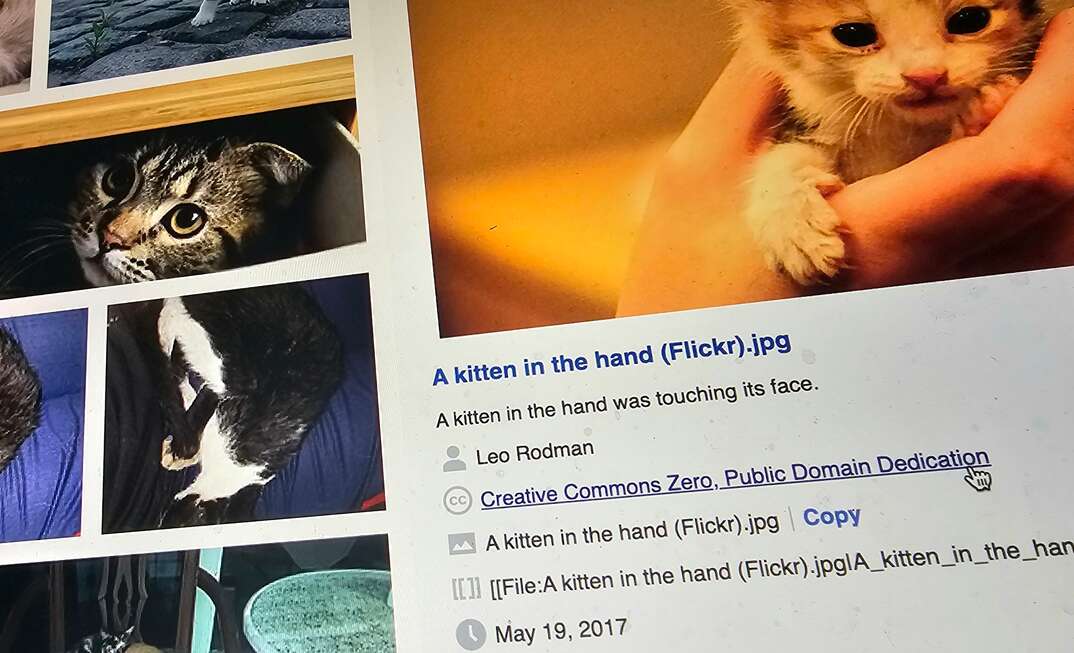What Is a Creative Commons License?

To understand what a Creative Commons license is, it's helpful to understand what copyright means. When someone creates something, such as a book, art, poetry, film, computer software or even website content and that product is viewed as original, it's classified as intellectual property and people can't reproduce it without permission.
If you opened up the cover to your favorite book, you'd likely see on the publishing information page that the book can't be reprinted or redistributed without permission because that book is intellectual property — it started as the author's idea and the copyright, or right to copy, lives with the original creator, the author. Other people who own copyrights and want to share their ideas can allow others to use them if they want. That's where Creative Commons comes in.
What Is the Creative Commons?
Founded in 2001, Creative Commons is an American nonprofit organization that tries to make it easier for creators to share intellectual property with other people. The company provides different CC licenses and public domain tools that give creators a free, standardized way to grant copyright permissions for their works to the general public and ensure proper attribution. It allows creators to preserve their copyrights while allowing others to use the material in limited ways.
Creative Commons offers six Creative Commons licenses. Each type includes different permissions and restrictions. One common thread throughout each license is that credit must always be given to the original creator.
CC BY
This CC license type lets people “distribute, remix, adapt and build upon the material in any medium or format.” The person reusing the material must provide attribution to the creator, and it allows for commercial use.
CC BY-SA
BY-SA also allows reusers to “distribute, remix, adapt and build upon the material in any medium or format,” as long as credit is given to the creator. It also allows for commercial use. One difference is that if you do distribute, remix, adapt or build upon the material, you have to “license the modified material under identical terms.”
CC BY-NC
This license type is identical to the CC BY license, except it's for noncommercial use only. It has the same exact parameters as CC BY in that credit must be given to the original creator.
Noncommercial use means you don't intend to sell whatever you're making for a profit or aren't charging a fee.
CC BY-NC-SA
This license type is identical to the CC BY-SA type, except this license is for noncommercial use.
CC BY-ND
This license lets individuals “copy and distribute the material in any medium or format in unadapted form only, and only so long as attribution is given to the creator.” It does allow for commercial use. In other words, the original material can't be modified or adapted.
CC BY-NC-ND
This license is the noncommercial version of the one above, BY-ND.
Another option that's not listed among the six license options is the CC0 (CC Zero) Public Domain Dedication. This allows creators to give up their copyright and put their works into the worldwide public domain, which allows anyone to distribute, remix, adapt or build upon the original material with no conditions.
More Related Articles:
- When Do You Need a Lawyer? Determine If You Need to Hire an Attorney
- What Is a Class-Action Lawsuit?
- What Is a Misdemeanor?
- What to Do After a Car Accident
- What Is Power of Attorney?
What's the Difference Between Fair Use and Creative Commons?
Section 107 of U.S. Copyright Law defines Fair Use as being able to use small portions of a piece, such as a written article or book, for example, for the purposes of criticism, teaching, commentary, news reporting, scholarship or research without having to obtain permission from the original creator.
Creative Commons, on the other hand, provides licenses to creators who want to share their work and allow others to adapt or create their own versions of the original.
Elocal Editorial Content is for educational and entertainment purposes only. The information provided on this site is not legal advice, and no attorney-client or confidential relationship is formed by use of the Editorial Content. We are not a law firm or a substitute for an attorney or law firm. We cannot provide advice, explanation, opinion, or recommendation about possible legal rights, remedies, defenses, options or strategies. The opinions, beliefs and viewpoints expressed by the eLocal Editorial Team and other third-party content providers do not necessarily reflect the opinions, beliefs and viewpoints of eLocal or its affiliate companies. Use of the Blog is subject to the
Website Terms and Conditions.The eLocal Editorial Team operates independently of eLocal USA's marketing and sales decisions.



